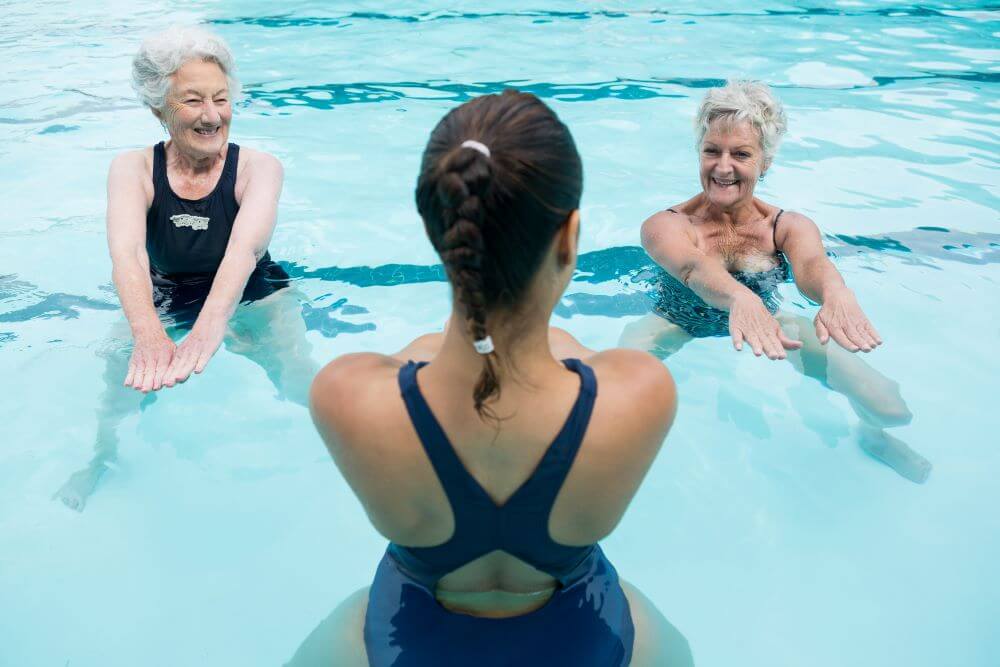Summer is a season filled with warmth and sunshine, inviting everyone outdoors, especially seniors, to participate in various activities. However, this pleasant time also brings heightened risks, such as increased exposure to heat and water-related accidents. Understanding these risks is crucial for seniors, as physiological changes associated with aging can make them more susceptible to heatstroke, dehydration, and accidents in aquatic environments. This comprehensive guide will delve into essential aspects of water safety for seniors during the summer months. We will cover different environments like pools, beaches, and boating areas, and discuss general safety tips, specific precautions for seniors with health conditions, and how to handle emergencies. The goal is to equip seniors and their caregivers with knowledge and strategies to enjoy summer safely and healthily.
Understanding the Risks
Common Water-Related Risks for Seniors
Participating in water activities can expose seniors to various hazards. Drowning risks are higher in this demographic, not only due to reduced physical capabilities but also because of slower response times in emergencies. Slips and falls near water bodies are common and can result in serious injuries, given the typically hard and slippery surfaces.
Factors that May Increase Vulnerability
Several factors contribute to increased vulnerability among seniors. Medications that affect cognition and balance, sensory impairments like reduced hearing and vision, and chronic conditions such as arthritis or Parkinson’s disease can significantly impair a senior’s ability to navigate water safely.
Importance of Awareness and Prevention
Awareness and preventive strategies are the first lines of defense in ensuring safety. This includes educating seniors and their families about potential risks and safety techniques, and ensuring that public facilities are equipped with appropriate safety measures like clear, nonslip signage, proper lighting, and accessible rescue equipment.
General Water Safety Tips
Always Swim with a Buddy
Swimming with a buddy provides a safety net, ensuring that assistance is immediate should a problem arise. This practice is especially important for seniors, who may experience fatigue or sudden health issues such as cramps or cardiac events while swimming.
Know Your Limits and Avoid Risky Behaviors
Seniors should engage in a self-assessment of their physical abilities and be mindful of conditions like fatigue or dizziness. It’s advisable to avoid swimming in deep or overly cold water, as these conditions can exacerbate health issues.
Stay Hydrated and Protect Against Heat-Related Illnesses
Staying hydrated is crucial. Seniors should drink water before feeling thirsty and avoid caffeinated or alcoholic beverages that can dehydrate. Wearing light-colored, loose-fitting clothing and scheduling outdoor activities during cooler parts of the day are also important.
Pool Safety for Seniors

Guidelines for Poolside Activities
Pool environments should be made safer with the installation of slip-resistant surfaces and ample seating areas for rest. Regularly scheduled water quality checks are crucial to prevent infections, and temperature controls can help in preventing shocks to the system.
Importance of Proper Supervision
Having trained professionals who understand the unique needs of senior swimmers can make a significant difference. These professionals can anticipate and react quickly to potential issues, and ensure that seniors are engaging in activities appropriate for their fitness levels.
Tips for Entering and Exiting the Pool Safely
Proper techniques for entering and exiting pools can prevent accidents. For instance, using a zero-depth entry pool where the pool floor gradually slopes from the deck into the water can significantly reduce the risk of falls.
Beach Safety for Seniors

Understanding Beach Hazards
Beach environments pose unique challenges such as shifting sands and wave action, which can destabilize even the most sure-footed individuals. Recognizing dangerous waves and rip currents is essential for anyone venturing into ocean waters.
Precautions for Sun Exposure and Heatstroke
The beach offers minimal shade, increasing the risk of sunburn and heatstroke. Seniors should take regular breaks under umbrellas or canopies, and use water-resistant, high-SPF sunscreen to protect their skin from UV rays.
Guidelines for Safe Swimming in the Ocean
Seniors should swim in designated areas monitored by lifeguards and avoid swimming in rough or choppy water. Understanding the color-coded flag system commonly used on beaches can help seniors identify safe conditions for swimming.
Boating Safety for Seniors

Importance of Wearing a Life Jacket
The importance of life jackets cannot be overstated. A life jacket should be worn at all times, even if the senior is a good swimmer, as unexpected medical conditions can impair swimming ability.
Tips for Boarding and Disembarking Safely
Using boats with stable, wide boarding ladders or ramps can help seniors enter and exit boats safely. Handrails and non-slip surfaces are also crucial, especially on smaller or private boats.
Understanding the Risks of Boating for Seniors
Boating requires constant vigilance and physical stability. Seniors should be particularly aware of the signs of seasickness and dehydration, and avoid prolonged exposure to sun and wind, which can exacerbate health issues.
Precautions for Seniors with Health Conditions
Recommendations for Seniors with Mobility Issues
Adaptive equipment, such as specially designed flotation devices and pool chairs, can help seniors with mobility issues enjoy water safely. Training in how to use these aids effectively is crucial.
Tips for Seniors with Heart Conditions or Diabetes
Seniors with these conditions should monitor their physical exertion and avoid situations that could lead to extreme stress on their cardiovascular system. Monitoring blood sugar levels before and after participating in water activities is critical for diabetics.
Advice for Seniors Taking Medications
Medications can alter physiological responses to heat and exertion. Seniors should consult with healthcare providers about adjusting their medication schedules around water activities, and ensure that any necessary medications are readily accessible.
Recognizing and Responding to Emergencies
Signs of Drowning and Heat-Related Illnesses
Understanding the signs of trouble, such as difficulty keeping the head above water or confusion and lethargy due to heat exhaustion, is vital for timely intervention.
Steps to Take in Case of an Emergency
Quick action can save lives. It’s important for seniors and their companions to know how to signal for help, perform basic rescue techniques, and provide first aid until professional help arrives.
Importance of Knowing CPR and First Aid Techniques
Training in CPR and first aid is invaluable. These skills are especially important in remote areas where medical help may not be immediately available.
This guide has extensively covered how seniors can safely enjoy water activities during the summer. Key areas of focus included understanding and mitigating risks, adhering to safety guidelines, and being prepared for emergencies. With proper preparation and awareness, summer can be a season of joy and healthful activity for seniors. It is a fantastic opportunity to enhance physical health and social interaction, which are crucial for maintaining quality of life in senior years. For more detailed information or specific concerns, seniors and their caregivers are encouraged to consult local community health centers, senior centers, or online resources dedicated to senior health and safety. These resources can provide further guidance and support tailored to individual needs.



